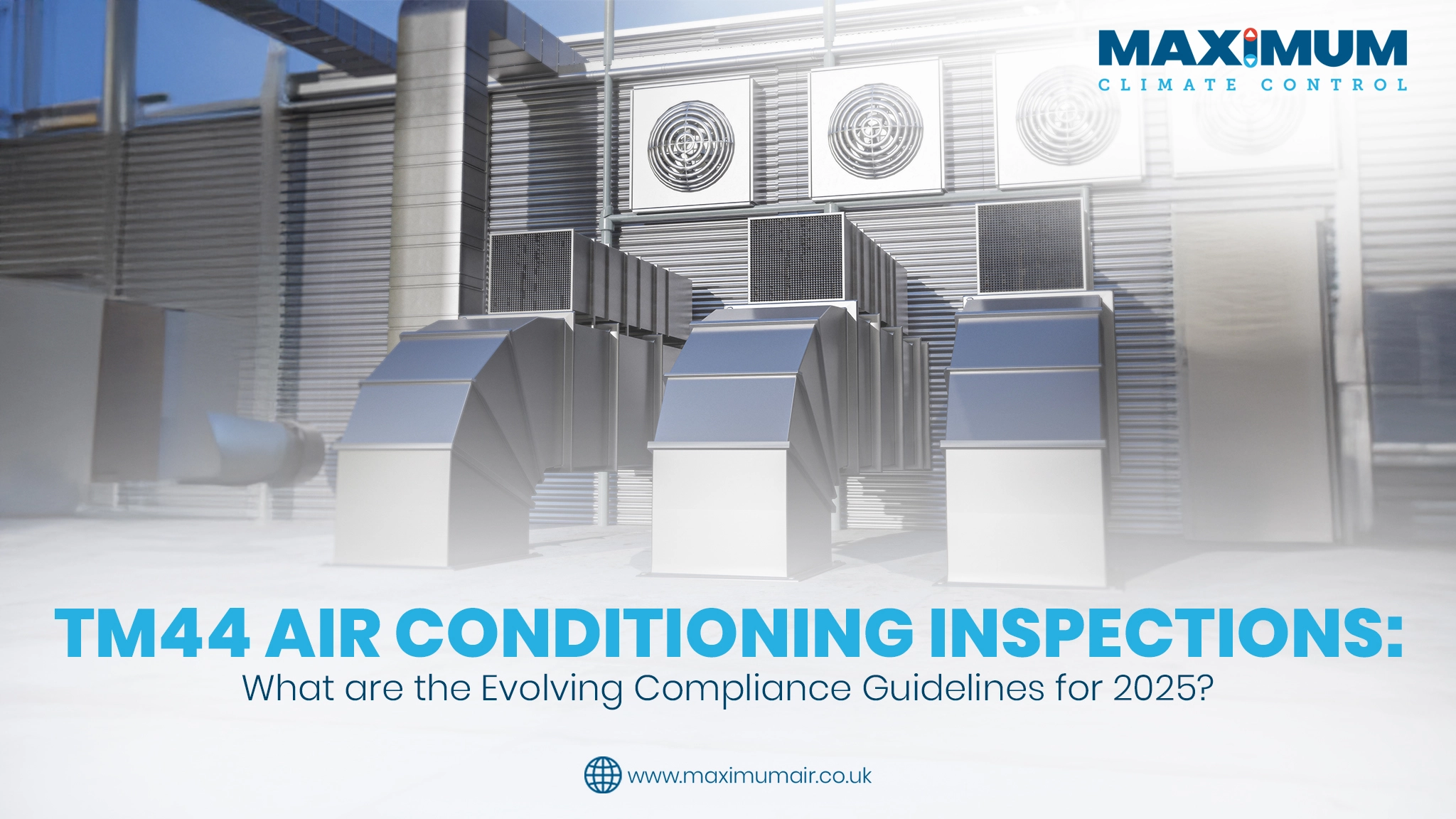Troubleshooting Your Daikin Air Conditioner System — Guidelines and Approaches Shared by Maximum Climate Control
May 31 2024by Maximum Climate Control
Is your Daikin air conditioner acting up? Leaking water, foul stench and the notorious nuisance of the AC not cooling are some of the most obstinate situations that call for troubleshooting.
Daikin is the world’s largest manufacturer of air conditioners and is a leading brand in the UK. Technical anomalies or system failures don’t mean that the equipment is faulty. It is part and parcel of technology, especially for complicated configurations that deal with temperature extremes.
The best part about Daikin’s products is that they come with a sizeable troubleshooting manual. It helps resolve common issues with detailed guidance. Users can often fix their AC problems themselves without depending on a technician. For some people, however, technical specs can never be simple.
Maximum Climate Control, being a Daikin-approved AC installer in the UK, has seen the better of it. Therefore, we will share some of our expert troubleshooting knowledge in this blog in a bid to simplify tech specs for anyone who wants to troubleshoot their Daikin air conditioners on their own.
What is AC Troubleshooting and How Does It Apply to Your Daikin Air Conditioners?
Troubleshooting is a technical term— it has all to do with systematically evaluating operational errors in a machine. Looking into different components requires careful handling to dismantle and reassemble. So if you are looking to troubleshoot our Daikin AC, you need to first understand the machine and its components.
Outdoor Unit: also called the “condenser unit,” which does the job of exhaling the hot air from indoors. The key components in this section are the ventilation fan, condenser coil and compressor.
Indoor Unit: Also called the “evaporator unit,” in this section of the electronic, the indoor air is absorbed into the refrigerant. Air is blown out by the evaporator coil. In this portion, you will have the air blowers, filters, and thermostats.
Drainage System: The condensed water is drained out of the PVC or metal pipe that is attached to the outdoor unit. Improper drainage often leads to clogs, mould growth inside the drainage system, and malfunctioning of the p-strap.
Whether your equipment is domestic or commercial AC is also a matter of consideration. The key difference between home ACs and those used in offices, restaurants and commercial premises vary in terms of size, portability, and central cooling mechanisms. Having accurate details about the components of your Daikin AC is the best way to pinpoint troubleshooting guidelines.
Troubleshooting Common Problems in Your Daikin Air Conditioner
Once you have the best knowledge of your equipment, it is time to address the issues with a hands-on approach. Let’s take a layman’s approach to it. We will make the tech specs sound simple to prioritise your safety and also that of your devices.
Air-Conditioner is Not Cooling: the most common reason behind it is contaminated air filters and obstructions in the ventilation fan. So check when the last time your filters were cleaned. Another troubleshooting tip is to check if your Daikin aircon sensors have bent over. Put it back in place gently and see if it resolves your problem.
Leakage in Daikin Aircon: Leakage is commonly the result of clogs in the drainage filter or reduced levels of refrigerant. This kind of issue usually requires more professional handling. It is safest to switch off the AC and call a Daikin-certified professional for servicing.
Steam or Smoke Releasing from the Outdoor Unit: The most common cause behind this is the accumulation of frost in the outside unit. It does not require any such troubleshooting until and unless there is a burning smell.
When Something is Burning: It is highly recommended that you do not try to handle burning smells on your own, and instead call for professional assistance.
Louvre/Flaps Not Closing, While AC Turned Off: Fully shut down the system and turn it on. Give it some time turn it on and then shut it off again. Keep it shut for 30-40 minutes.
Mould/Algae Buildup Issues: Clean the dust box at home and reset the lamp by connecting the aircon’s power cord to the AC outlet, or turning on the circuit breaker. You can also use the “filter cleaning” indicator to reset the system.
Importance of Working with a Daikin-Certified Professional for AC Troubleshooting
A big part of troubleshooting is preventing future anomalies and maintaining the longevity of the system. AC troubleshooting is an essential skill for maintaining the performance and longevity of your Daikin air conditioner.
By understanding common issues and following systematic troubleshooting steps, you can resolve many problems on your own. However, don’t hesitate to seek professional assistance for more complex issues or regular maintenance. With proper care, by certified engineers at Maximum Climate Contol, your Daikin air conditioner will provide reliable and efficient cooling for years to come.
Share this article
If you’re looking for advice or a quote for a new HVAC system or maintenance, get in touch with our expert!
Speak to an expert Explore Our Product RangeFor further reading
December 09 2025By Maximum Climate Control
How Often Should Restaurants Schedule an Air Conditioning Commercial Service to Avoid Peak Season Breakdowns?
Running a busy restaurant means managing the constant heat of kitchens, the continuous flow of customers, and the pressure of keeping every guest comfortable. Your air conditioning system works harder than most, especially during peak dining hours. A single […]
October 21 2025By Maximum Climate Control
TM44 Air Conditioning Inspections: What are the Evolving Compliance Guidelines for 2025?
Is comfort the only thing you pay for when installing and servicing air conditioning systems in commercial spaces? According to building owners, facility managers, and occupiers, that answer is no. You also receive energy performance and high air quality. All […]




